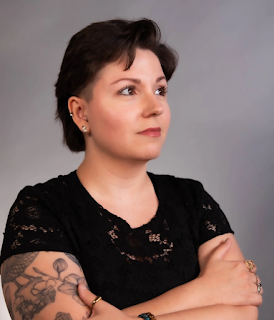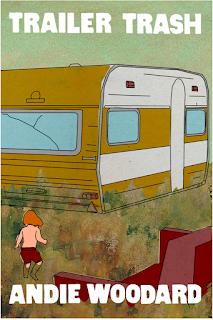Madison: I’ve been ghostwriting since 2019. At the time, I had been a freelance writer for a couple of years, doing mostly short-form content and copywriting. I had been helping my husband blog about his teaching experiences, and after a few months, we realized we had enough material to create a book. That book was my first ghostwriting project, and I enjoyed the process so much that I decided to look for more opportunities to do it.
Madison: I help people craft clear messages about complex stuff. I love to tackle a complicated, abstract idea and lay it out in concrete terms anyone can understand.
Ami: Tell me about some of your recent career successes.
Madison: By the end of this year, I'll have 10 published books under my belt, most of which were written in the last 2 years.
Madison: In truth, my enjoyment comes more from the author relationship than from the content. I've always been a curious person, so I'm game to dive into any topic, and I can promise I'll have fun with it as long as the author is excited to share their message.
In practice, I do a lot of writing on business-related topics, but I've also written about psychology, leadership, education, personal growth, and more. Then there are my personal interests, which include music, art, nature, science, travel... There's a very wide range of things I would enjoy writing about.
Ami: What are some of your favorite projects that you’ve worked on? What made them so special?
Madison: One of my favorite projects was a book for entrepreneurs about how to manage the "people side" of their organizations as they scale up. The author was an executive coach who came to me with only a vague idea of what the book would be about, and we developed the manuscript over the course of a year. We started out by writing a weekly blog to get all the important ideas out on the table, then we pulled that material together into a more comprehensive book.
The best part was that the author was looking for a true thought partner and was highly receptive to my questions and suggestions throughout the process. The raw material was his, but he allowed me to play a significant role in shaping it, which I thoroughly enjoyed and appreciated.
Ami: In a perfect world, what will your writing career look like by this time in 2025?
Madison: Of course, I fully intend to continue working one-on-one with authors to ghostwrite complete manuscripts. However, I also have plans to explore some one-to-many services, like group book coaching and online courses--anything that helps more people put their ideas out into the world in an impactful way.
Ami: What advice would you give to someone who is considering hiring a book coach or ghost?
Madison: Don't worry too much about whether they've written "bestsellers" or traditionally published books. What matters most is whether they make you feel understood, both in conversation and in their writing. If you can tell that they get you and your message, you have a winner. That rapport makes it so much easier for you to express yourself, and it will make you more receptive when they ask questions and make suggestions.
At least twice, I've taken over projects from much more experienced ghostwriters because the authors simply didn't click with them, and I learned from those experiences that a good relationship means everything on these long-term, demanding, emotional projects.





